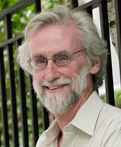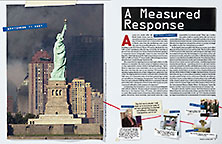 A distinguished political theorist, Stephen Holmes, Walter E. Meyer Professor of Law, has spent decades thinking about the paradoxes of democracy and liberalism. In his 1995 book, Passions and Constraint: On the Theory of Liberal Democracy, he argued that individual liberty and tolerance of diversity tend to thrive only under active government—but that publicly accountable decision making must be structured and constrained by formal rules to facilitate collective rationality and self-correction. Rules and procedures, in other words, can protect important freedoms.
A distinguished political theorist, Stephen Holmes, Walter E. Meyer Professor of Law, has spent decades thinking about the paradoxes of democracy and liberalism. In his 1995 book, Passions and Constraint: On the Theory of Liberal Democracy, he argued that individual liberty and tolerance of diversity tend to thrive only under active government—but that publicly accountable decision making must be structured and constrained by formal rules to facilitate collective rationality and self-correction. Rules and procedures, in other words, can protect important freedoms.
When his attention turned to counterterrorism after 9/11, Holmes naturally considered the role of rules in the promotion of security. Characteristically, his analysis took unconventional turns. In the prestigious Jorde Lecture he delivered in April 2008 at Yale University, he noted that in hospital emergency rooms, nurses and doctors spend precious seconds following protocols to ensure, for example, that a Type O patient receives only Type O blood. The ER teaches an important lesson about responding to the disorienting challenge of terrorism, Holmes says. By following rules—rather than trying to evade them—officials can diminish the chance of error, build political and public support for controversial policies, and highlight collateral dangers created by the best of intentions.
Throughout his writing, Holmes challenges the Bush administration’s argument that the need for flexibility in combating terrorism justifies suspending well-established rules, such as the Constitution’s instruction that Congress shares war-making authority with the president, or the judiciary’s system for ensuring that prisoners receive a hearing under the habeas corpus statute. Robust congressional review of the reasons for war—as opposed to a rubber stamp based on contrived evidence of weapons of mass destruction—could have prevented what most Americans now see as a misguided adventure in Iraq, he says. In an April 2006 essay in The Nation, “John Yoo’s Tortured Logic,” Holmes tallied the casualties he attributes to the once-secret legal memoranda by the former Justice Department lawyer who advocated virtually unlimited presidential power to fight terrorism. “By dismantling checks and balances, along the lines idealized and celebrated by Yoo,” Holmes wrote, the Bush administration “certainly gained flexibility in the ‘war on terrorism.’ It has gained the flexibility, in particular, to shoot first and aim afterward. It has acted on disinformation and crackpot theories and utopian expectations that could perhaps have been corrected or moderated if traditional decision-making protocols had been respected.”
Expanding on this idea in his 2007 book, The Matador’s Cape: America’s Reckless Response to Terror, Holmes urged a reassertion of judicial and legislative oversight—a respect for the rule of law: “Law is best understood not as a set of rigid rules but rather as a set of institutional mechanisms and procedures designed to correct the mistakes that even exceptionally talented executive officials are bound to make.”
—
